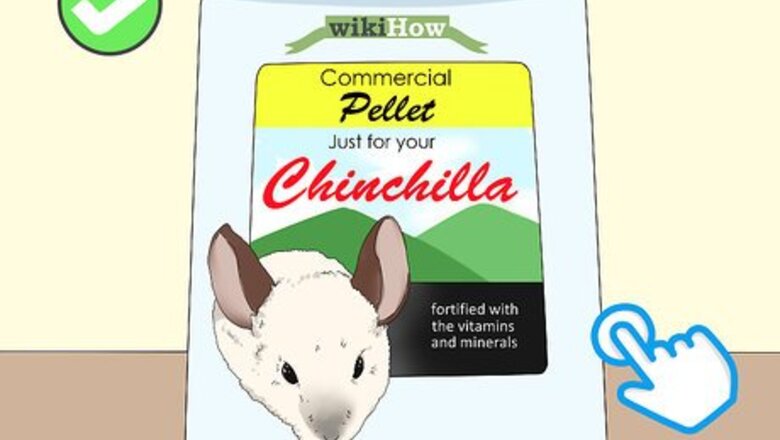
views
Providing Basic Pellets
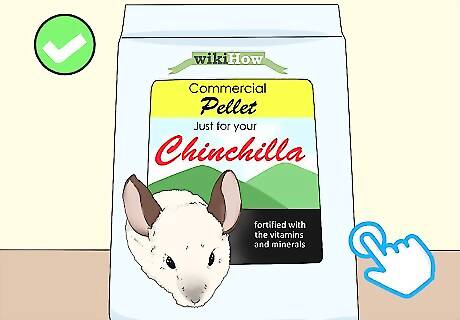
Choose a commercial pellet designed for chinchillas. Never feed a chinchilla a pellet designed for mice, rabbits, or other small animals. You need to get commercial pellets specifically made for chinchillas to ensure they're fortified with the vitamins and minerals your pet needs to thrive. You can find pellets online or at a local pet store.
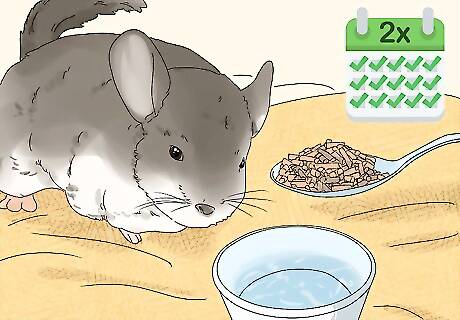
Feed your chinchilla twice a day. Chinchillas need between one to two tablespoons (15 to 30 mL) of commercial pellets each day. The pellets should be split evenly between two meals. One meal should be served in the morning and the other should be served at night. Talk to your vet to figure out the precise amount of pellets your chinchilla needs. You should also talk to your vet before making any changes to your chinchilla's diet.
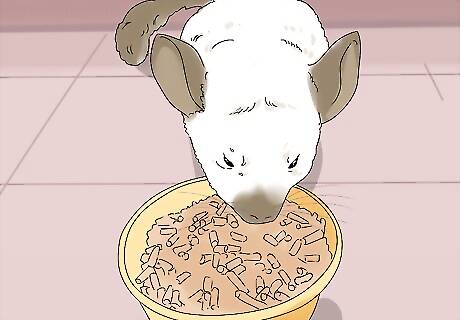
Make sure your chinchilla actually eats its pellets. Serve pellets on their own and do not mix them with other food, especially sweeter treats. Chinchillas sometimes pick around the pellets and only eat the treats. If your chinchilla is not eating its pellets, you may have to have scheduled meal times where you only provide the pellets and no supplemental food like veggies or hay.
Supplementing Your Pet's Diet
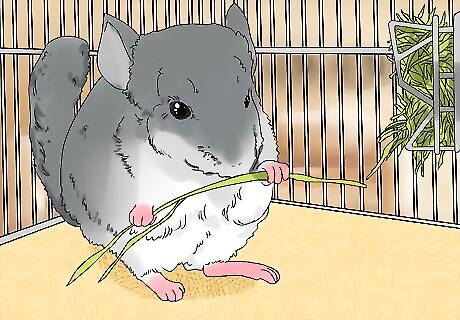
Provide a steady supply of hay. Provide hay in your chinchilla's cage at all times so it has something to graze on. Chinchillas need hay between 14% and 16% plant protein. Good hays include alfalfa hay, timothy hay, orchard grass, and blue grass. You can buy hay at most pet stores or online. It usually costs around $20 per bag. Make sure to only buy alfalfa hay, timothy hay, orchard grass, or blue grass. Other types of hay can be dangerous for chinchillas. Keep in mind that hay is important for a chinchilla's digestive system to work properly. Hay also wears down a chinchilla's teeth, which will continue to grow throughout his life.
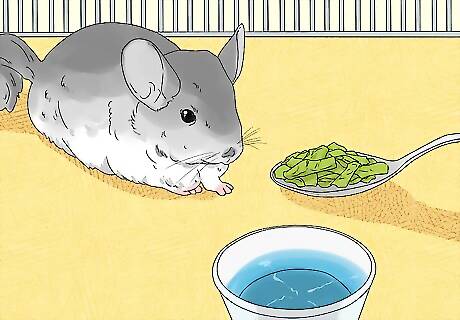
Offer 1 tablespoon (5 mL) of greens every day. Chinchillas should have a single teaspoon (5 mL) of greens each day. Chop the greens into small portions, so chinchillas can easily eat them. Good choices include romaine lettuce, cilantro, and dandelion greens. Throw out any uneaten greens after 24 hours.
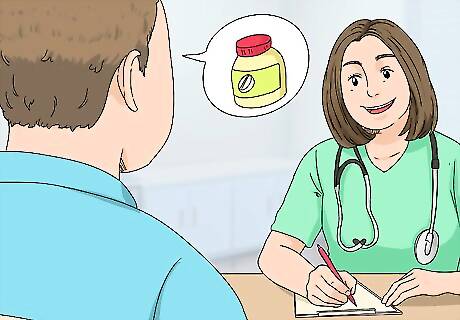
Talk to your vet about supplementing the pellets. Depending on your chinchilla's health, it may benefit from certain dietary supplements, such as calcium supplements. Supplements should only be given under the supervision and advice of a vet. Providing supplements without veterinary guidance can cause serious, sometimes fatal, side effects. Usually, a chinchilla only need supplements if it's pregnant or has a calcium deficiencies. Talk to your vet about how to best administer supplements. They may be crushed and placed in a chinchilla's food or given via syringe.
Avoiding Unhealthy Practices
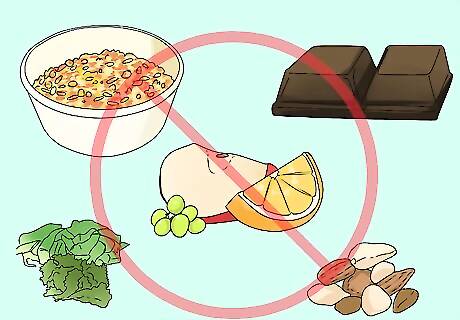
Avoid foods that may cause health problems for your chinchilla. There are several foods that may cause your chinchilla to get sick or lead to long-term health problems. Feeding your chinchilla these foods may give him diarrhea, damage his organs, cause bloating, promote tooth decay, or damage your chinchilla’s nervous system. Some foods to avoid giving your chinchilla include: Commercial treat mixes Chocolate Fruits Vegetables (other than greens) Nuts and seeds
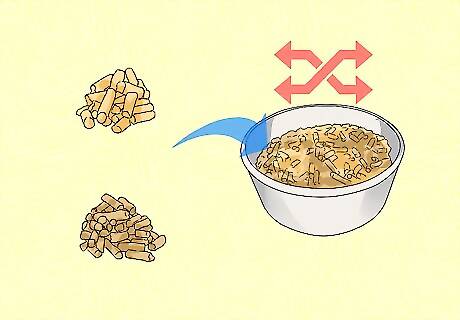
Make any changes to your chinchilla's diet slowly. If you need to switch pellets for whatever reason, do so slowly. Start by mixing in a small amount of the new pellets with the old pellets and gradually increase the amount of new pellets over the course of a few weeks. Chinchillas have sensitive stomachs and may become ill if changes to their food happen too quickly.
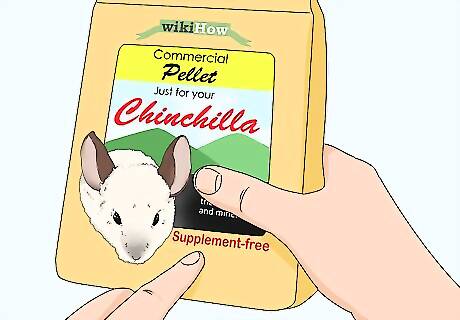
Double check that your pellets are supplement-free. Do not buy pellets that are fortified or have supplements built in. Make sure you get plain pellets that don't have things like added calcium. Supplements should only be given under the direction of a vet.











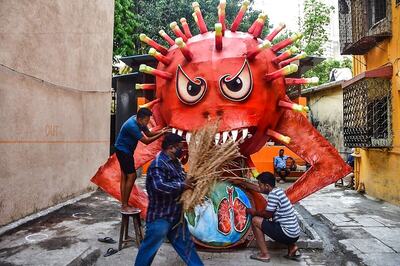
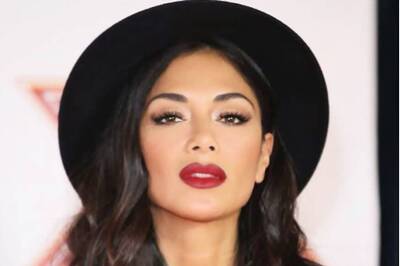
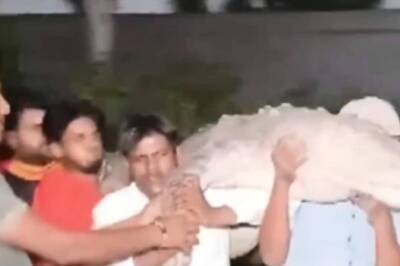

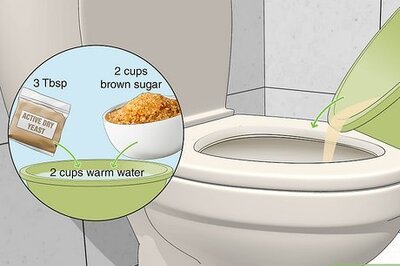

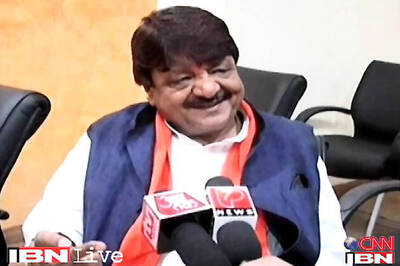
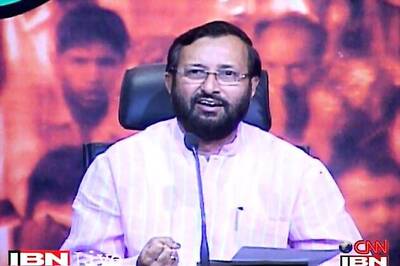

Comments
0 comment